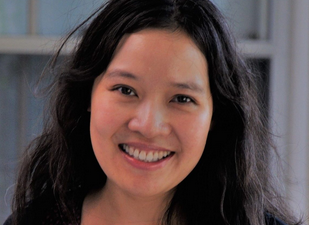
A Canadian professor of history has been been denied re-entry into Hong Kong, likely because the subject matter of her research: the shameful actions of the Chinese Communists in violently suppressing the 1989 democracy movement centered in Tiananmen Square. Al Jazeera reports that the professor, Rowena He, “has been fired from her university position after the city’s immigration authorities declined to extend her visa.”
Who is Rowena He? From her page at Chinese University of Hong Kong:
Professor He is a China specialist and historian of modern and contemporary Chinese society and politics. She received her M.A. and Ph.D. from the University of Toronto and conducted her postdoctoral research at Harvard’s Fairbank Center for Chinese Studies as a SSHRC fellow (Social Sciences and Humanities Research Council of Canada). Her first book Tiananmen Exiles: Voices of the Struggle for Democracy in China was named one of the Top Five China Books of 2014 by the Asia Society’s China File.
HE Xiaoqing Rowena. Faculty page at Chinese University of Hong Kong
Professor He’s book, Tiananmen Voices, is described on its Amazon page:
In the spring of 1989, millions of citizens across China took to the streets in a nationwide uprising against government corruption and authoritarian rule. What began with widespread hope for political reform ended with the People’s Liberation Army firing on unarmed citizens in the capital city of Beijing, and those leaders who survived the crackdown became wanted criminals overnight. Among the witnesses to this unprecedented popular movement was Rowena Xiaoqing He, who would later join former student leaders and other exiles in North America, where she has worked tirelessly for over a decade to keep the memory of the Tiananmen Movement alive.
This moving oral history interweaves He’s own experiences with the accounts of three student leaders exiled from China. Here, in their own words, they describe their childhoods during Mao’s Cultural Revolution, their political activism, the bitter disappointments of 1989, and the profound contradictions and challenges they face as exiles. Variously labeled as heroes, victims, and traitors in the years after Tiananmen, these individuals tell difficult stories of thwarted ideals and disconnection, but that nonetheless embody the hope for a freer China and a more just world.
Description of “Tiananmen Voices: Voices of the Struggle for Democracy in China.” Amazon.com.
The “thwarted ideals and disconnection” continues in China’s Hong Kong, which has effectively lost all freedom under Communist control.
Al Jazeera notes that other “foreign critics” have been similarly blocked. Other forms of criticism, such as “The Pillar of Shame,” a reminder to the Tianamen massacre, have been removed or suppressed.
Tiananmen Square memorials have also disappeared from Hong Kong, including the Pillar of Shame, a sculpture that was installed on the University of Hong Kong’s campus until it was removed in 2021, and a small museum dedicated to the protest. Books about the event were also moved from Hong Kong libraries earlier this year.
“Hong Kong denies visa to prominent Tiananmen Square scholar.” Al Jazeera. Oct 28, 2023.
The suppression of historical knowledge is an important element for a totalitarian regime. Historical facts invite analysis of the quality of decision-making and the character of rulers. History is another form of accountability. And any honest inspection of the history of Chinese Communism reveals unceasing violence against the people of China.
But rather than face up to this history, the government of China tries to de-platform scholars like Christina He.
And they got rid of the Pillar of Shame. But (for now) Wikipedia remembers:
a copper sculpture, first erected in Victoria Park in 1997 to mark the eighth anniversary of the Tiananmen Square protests of 1989. The statue depicts 50 torn and twisted bodies to symbolize those who died in the government crackdown. On the base of the statue, the history and pictures of the massacre are carved in and engraved into the base, in both English and Chinese, are the words “The Tiananmen Massacre,” “June 4th 1989” and “The old cannot kill the young forever.”





